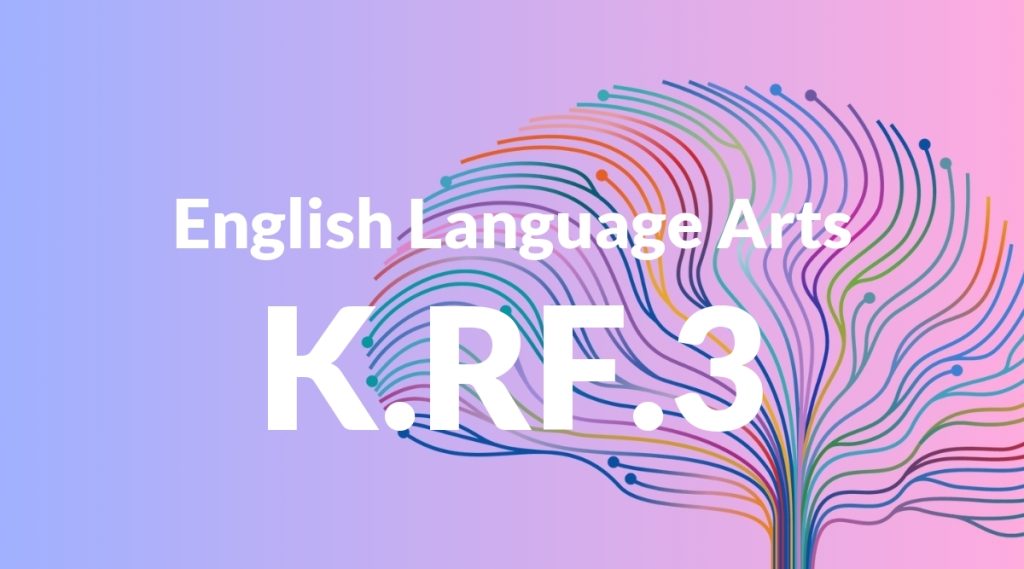Standard: K.RF.3 – Know and apply grade-level phonics and word analysis skills in decoding words.
Grade level: Kindergarten
Subject: English Language Arts
Domain: Reading: Foundational Skills
Teacher Overview
This standard focuses on teaching kindergarten students the foundational skills of phonics and word analysis. These skills are crucial as they form the basis for reading fluency and comprehension. Mastering this standard will enable students to decode words, which is a key step in becoming proficient readers. Students should be familiar with the alphabet and the sounds each letter makes. They should also be able to recognize and name most of the letters in the alphabet.
After mastering this standard, students will progress to reading more complex texts, enhancing their fluency and comprehension skills.
Common Misconception 1
A common misconception is that each letter corresponds to only one sound. This is incorrect because many letters, such as vowels, can represent multiple sounds.
Intervention 1
To address this misconception, use activities that highlight the different sounds letters can make, such as sorting words by vowel sounds or playing phonics games that emphasize sound variations.
Common Misconception 2
Another misconception is that students should rely on pictures to guess words. This is incorrect because it bypasses the decoding process, which is essential for reading development.
Intervention 2
To remediate this, cover pictures in books and focus on phonics-based decoding strategies. Use guided reading sessions to practice sounding out words without visual cues.
Prerequisite Knowledge
Students should have basic letter recognition and an understanding of letter sounds before tackling this standard.
Subsequent Knowledge
After mastering this standard, students will be able to read more complex texts with increased fluency and comprehension.
Instructional Activities
- Phonics games and activities that involve matching letters to sounds.
- Guided reading sessions focusing on decoding words.
- Interactive read-alouds with a focus on phonics and word analysis.
- Writing activities that encourage phonetic spelling.




